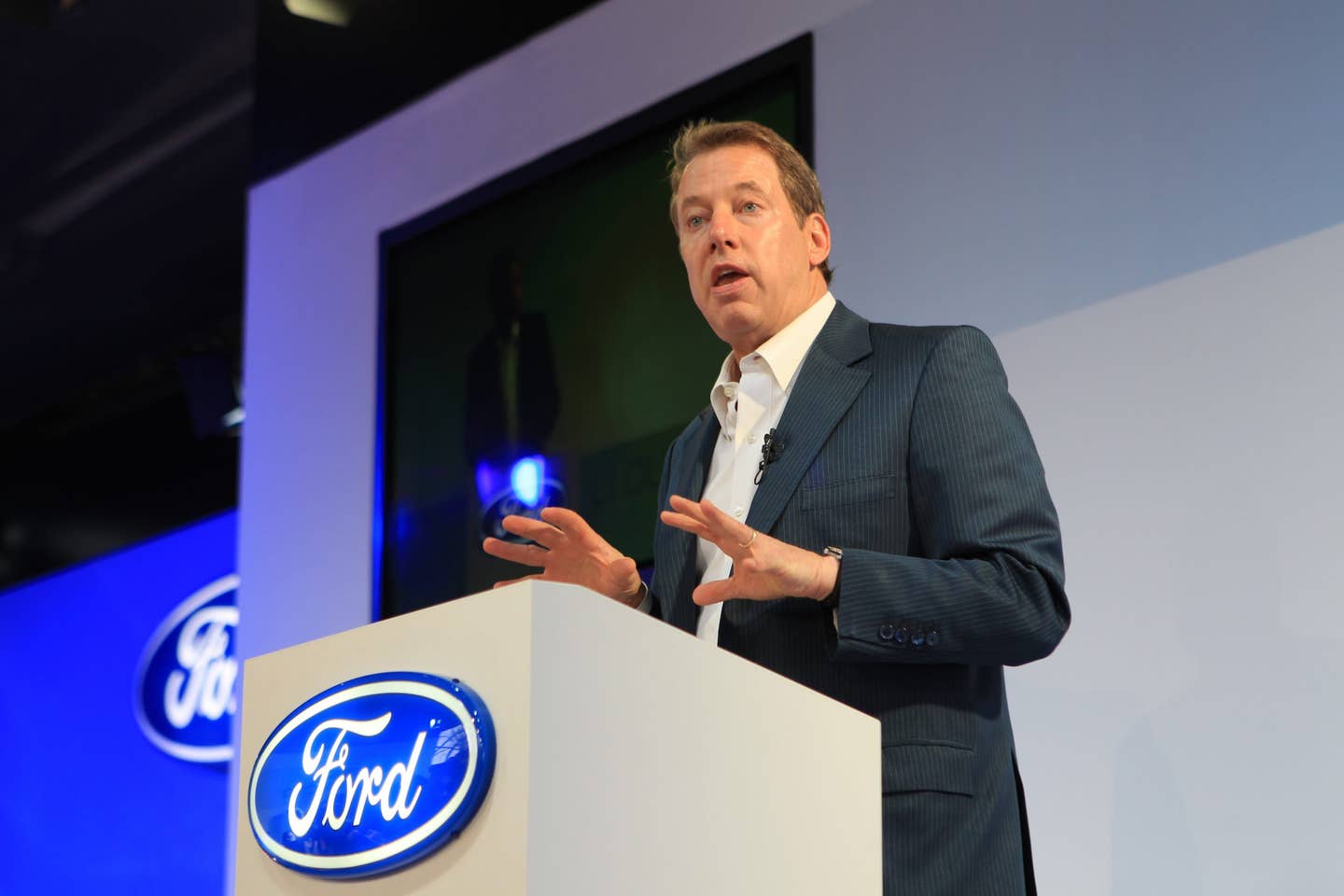
Bill Ford believes that flying cars will eventually become a reality, but he also thinks they will need to be autonomous. Ford Motor Company
When Ford Motor Co. chairman Bill Ford was asked at SXSW if we'd be seeing his company's logo on a flying car anytime soon, his answer was simple: "No."
Flying car fever is gripping America's tech-hungry population lately, as Dutch developer PAL-V announced in February that its Liberty, a three-wheel gyrocopter, is for sale and will begin shipping by the end of 2018. Airbus is the latest company making headlines for being so close to bringing flying cars into our lives. Ever since we watched Marty McFly and Doc Brown travel to a future packed with flying cars, people have expected scientists and engineers to make roads and highways irrelevant, so the hype behind the Airbus Pop.Up, which was recently revealed at the Geneva International Motor Show, shouldn't surprise anyone.
Ford certainly isn’t surprised, and despite his reluctance to produce flying vehicles for his great-grandfather’s company, he said he believes that flying cars are “very possible.” In fact, he told the audience at the conference on Smart Mobility in Austin, Texas, that the concept of a flying car is “not so crazy.” However, he said, when it comes to drivers, there’s a catch.
"They had better be autonomous," Ford said, according to Business Insider. "Most people can't drive in two dimensions, let alone three."
On the subject of automation, he added, “Think about today, planes, which you take off and land at the airport, which eliminates 99 percent of their usefulness. You have to be a licensed pilot. Well, how many of those are there?
"But in time, regulations change and these things start to become more interesting. So, I wouldn’t say never for us, but not in the short term for us."
In addition to the Airbus Pop.Up, Google co-founder Larry Page gave the flying car notion a huge boost when he invested $100 million in Kitty Hawk in 2016. The startup, which aims to make electric-fueled personal aircraft a reality, recently obtained two new licenses from the FAA for electric rotorcraft, according to reports.

Subscribe to Our Newsletter
Get the latest FLYING stories delivered directly to your inbox






